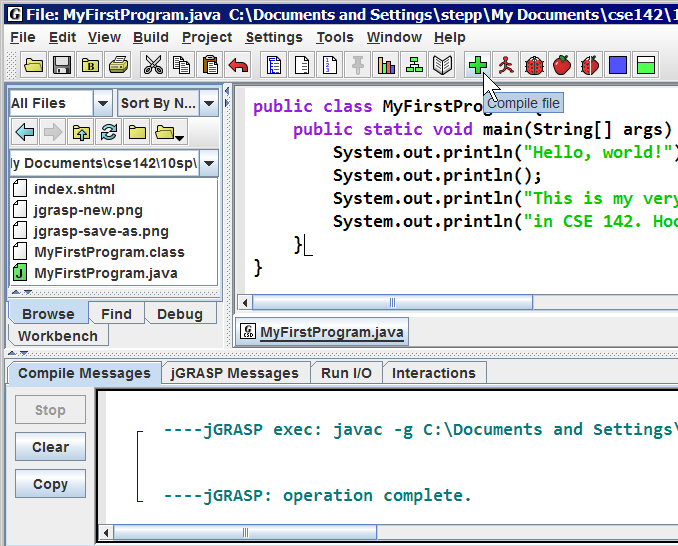
Java is a high-level language and software-only platform. It runs on more than 50 million personal computers and on billions of devices worldwide. Eclipse is a software designed to manage IDE for Java. Java Runtime Environment. Java is a program that enables you to do a range of.
A Java-powered program Java is a set of and specifications developed by, which was later acquired by the, that provides a system for developing and deploying it in a computing environment. Java is used in a wide variety of from and to and., which are less common than standalone Java applications, run in secure, environments to provide many features of native applications and can be embedded in pages. Writing in the is the primary way to produce code that will be deployed as in a (JVM); byte code are also available for other languages, including,,, and.
In addition, several languages have been designed to run natively on the JVM, including, and. Borrows heavily from and, but object-oriented features are modeled after and.
Java eschews certain low-level constructs such as and has a very simple memory model where every object is and all variables of object types are. Memory management is handled through integrated automatic performed by the JVM.
On November 13, 2006, Sun Microsystems made the bulk of its implementation of Java available under the (GPL). The latest version is Java 9, the second of the two supported (with e.g.
Security updates) versions as of 2017. Oracle (and others) has announced that using older versions (other than Java 8) of their JVM implementation presents serious risks, due to unresolved security issues. Contents • • • • • • • • • • • • • • • • • • • • • • • • • • • Platform [ ] The Java platform is a suite of programs that facilitate developing and running programs written in the programming language. A Java platform will include an execution engine (called a ), a compiler and a set of; there may also be additional and alternative libraries that depend on the requirements. Java is not specific to any processor or as Java platforms have been implemented for a wide variety of hardware and operating systems with a view to enable Java programs to on all of them. Different platforms target different classes of device and: •: A technology that allows small Java-based applications () to be run securely on and similar small-memory devices. • (Micro Edition): Specifies several different sets of libraries (known as profiles) for devices with limited storage, display, and power capacities.
It is often used to develop applications for mobile devices, PDAs, TV, and printers. • (Standard Edition): For general-purpose use on desktop PCs, servers and similar devices. • (Enterprise Edition): Java SE plus various APIs which are useful for. The Java platform consists of several programs, each of which provides a portion of its overall capabilities. For example, the Java compiler, which converts Java source code into Java bytecode (an intermediate language for the JVM), is provided as part of the (JDK). The (JRE), complementing the JVM with a, converts intermediate bytecode into native machine code on the fly.
The Java platform also includes an extensive set of libraries. The essential components in the platform are the Java language compiler, the libraries, and the runtime environment in which Java intermediate bytecode executes according to the rules laid out in the virtual machine specification. Java Virtual Machine [ ]. Main article: The heart of the Java platform is the concept of a 'virtual machine' that executes programs. This bytecode is the same no matter what hardware or operating system the program is running under. There is a JIT (Just In Time) compiler within the Java Virtual Machine, or JVM.
Download Singing Superstar Software Software on this page. The JIT compiler translates the Java bytecode into native processor instructions at run-time and caches the native code in memory during execution. The use of bytecode as an intermediate language permits Java programs to run on any platform that has a virtual machine available. The use of a JIT compiler means that Java applications, after a short delay during loading and once they have 'warmed up' by being all or mostly JIT-compiled, tend to run about as fast as native programs. Since JRE version 1.2, Sun's JVM implementation has included a instead of an interpreter.
Although Java programs are or platform independent, the code of the Java Virtual Machines (JVM) that execute these programs is not. Every supported operating platform has its own JVM. Class libraries [ ]. Main article: In most modern (OSs), a large body of reusable code is provided to simplify the programmer's job. This code is typically provided as a set of that applications can call at runtime. Because the Java platform is not dependent on any specific operating system, applications cannot rely on any of the pre-existing OS libraries.
Instead, the Java platform provides a comprehensive set of its own standard class libraries containing many of the same reusable functions commonly found in modern operating systems. Most of the system library is also written in Java.